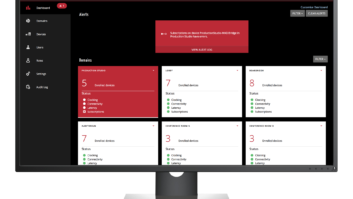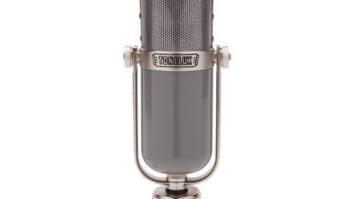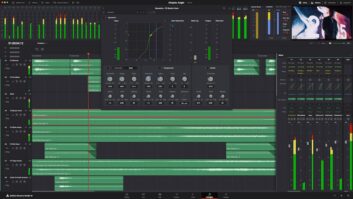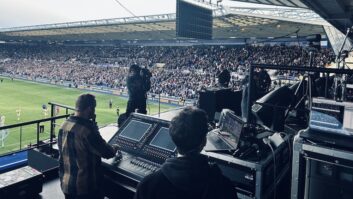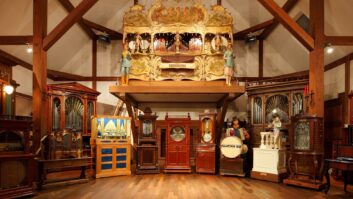
New York, NY (July 20, 2020)—When the touring industry shut down on March 12 this year because of COVID-19, production pros and artists alike immediately felt the pain. Touring schedules were wiped out in an instant and many venues of all sizes remain empty as the pandemic continues. Even as some states attempt to reopen, partial capacity and social distancing restrictions remain in place in most regions to help prevent the spread of COVID-19, making holding a concert or event a challenge on every front, and that’s presuming that an audience—or crew—is willing to show up given the current circumstances. With that in mind, and with the need to work increasingly paramount for all involved even if there’s a reduced return, many audio vendors and artists are turning to the internet and rapidly reinventing the concert livestream.
The pandemic is an international problem, of course, which means event production companies around the globe are facing the same challenge of pivoting on short notice. “We pushed forward with the confidence that we are a healthy business and we can make it through, but we also had to confront the brutal facts that times have changed and so must we,” said Sam Dimond, director of Spotlight Sound in the UK, which offers not only audio but lighting, staging and AV as well. “We considered how we can offer our customers a way of taking their events online—something which would also enable them to reach new audiences. We looked at our current video equipment, took stock of what we had and what we needed to offer a high-quality recording and streaming service. As a result, we’ve built a new virtual studio in our warehouse to stream events online.” The new studio has been put through the paces already, hosting DJ Amy Lauren’s set for Papyrus Festival, a virtual EDM event.

For artists who would normally be on tour right now at the height of the summer, livestreaming a concert event offers enticing possibilities, but there are endless production questions that have to be considered, all of which essentially boil down to ‘how do you make an economically viable concert livestream, so that all parties get paid and fans get a satisfying experience?’ As acts wrestle with this conundrum, the approaches are as varied as the artists themselves.
Roadrunner Records band Trivium released its ninth album, What the Dead Men Say, in late April and was all set for a summer shed run when the pandemic kicked in. “February and March, we were in your typical tour pre-production phase,” recalled Charlie Bybee, the band’s production manager. “We hired a new show designer, budgeted out purchasing scenic set carts, paid for a lighting design. We had everything in motion for a typical tour.”

Months later, with production money spent and scenic pieces now sitting in storage, Trivium and its management weighed the possibility of doing a virtual show. “We’ve seen other bands doing it; Code Orange was one of the first to put up a livestream on a Twitch channel for free,” noted Jenny Douglas from 5B Artist Management. That hardcore act grabbed the industry’s notice when it garnered more than 13,000 simultaneous views on March 14—two days after all touring shut down—as it livestreamed its unexpectedly scrapped launch show for its new album, Underneath, inside the empty 1,470-seat Roxian Theater in Pittsburgh.
“A lot of bands are seeing that and are realizing if fans pay for a ticket, they can do a bigger show and bring you the lights and cameras and better equipment all around,” said Douglas. Trivium ultimately mounted its own livestream concert in mid-July, and found a way to make it economically viable by using production facilities at Full Sail University in Winter Park, FL. The school and group were well familiar with each other, as Trivium actually recorded the new album in one of Full Sail’s studios and guitarist Corey Beaulieu is a graduate as well. “Full Sail offered us that facility for free so that the students could come in and learn, so they gained something and we gained something—which was an album,” said Douglas, who is herself a graduate of the school’s show production program. “When the band recommended Full Sail for this livestream, as management, we shopped around, but Full Sail said we’ll give you our full webcast capabilities, the room, lights, PA, a monitor system. And it’s like whoa—from a bean-counter point of view, why wouldn’t we choose Full Sail? We get this free facility with all this state-of-the-art equipment.”
How Pros Are Livestreaming During the Pandemic
The band and crew prepped for five days onsite. “We really didn’t do much different than you would do setting up a tour,” said Bybee. “We did a week of rehearsals with the band, arrangements, we built playback systems, loaded in—everything you would typically do, except just for one show.” That included bringing in Trivium’s FOH engineer Matthew Woods to mix the livestream on a Yamaha CL5 console. Bybee, who doubles as the band’s monitor engineer, mixed for the group’s Shure PSM 1000 in-ear monitors using an Avid Venue S6L desk.
The 100-minute concert livestream came off without a hitch, with more than 10,000 fans paying $9 a ticket to watch the stream live and get unlimited views for three days after the show. “From our end, it went fantastic,” said Douglas. “The stream was perfect and the band was really happy; we definitely think it was a mission accomplished.”

It’s likely more acts will experiment with livestreams, but the format is rapidly evolving as artists look to bring something new to the table. Underoath was supposed to spend the summer on tour with Slipknot; as the pandemic wore on and livestreams began gaining traction, the band took notice. “At first, I was not really into the idea personally,” said guitarist Tim McTague, “because I didn’t understand the model and I don’t know that anyone does. We took a month to observe and decided if we ventured into this livestream era of things, we had to do it high-quality while making sure it made sense and we didn’t try to put on an arena show and lose our houses over it.”
To make that happen, the group reteamed with creative direction house Tension Division, which had handled the release of Underoath’s last album, 2018’s Erase Me; together, they explored what they felt a livestream could become. The end result was Underoath:Observatory, a series of three concerts played throughout July with the band performing albums in their entirety while immersed within a moody circular staging concept, custom-built for the production inside a warehouse. “We wanted to create an interesting space where it wasn’t that we’re in a bar with two cameras on tripods,” laughed McTague. “We’re playing in a giant, 36-foot circle of trusses and lights, all of which will all be facing each other.” The band’s FOH engineer and other production team members were on-hand, but given Florida’s spiking cases of COVID-19 in July, some opted to stay home elsewhere in the country instead.
Speaking during a break in rehearsals before the first stream, McTague was still wrapping his head around the project even as he explained it, laughing, “In two weeks, we created a venue, a merchandise company and a ticketing platform for a business that two months ago didn’t even exist! It’s a really unique time to be creative and we’re finding it exhausting and very, very challenging. It’s the first time I’ve ever done interviews about something that’s not real yet. Normally I’m doing interviews about a record and that’s done; all of this is all theoretical. There’s no models, nothing to compare it to. I don’t know if it’s a success story, if it’s a failure story, if we’re doing it right or wrong. What I do know is we’re doing it our way.”
